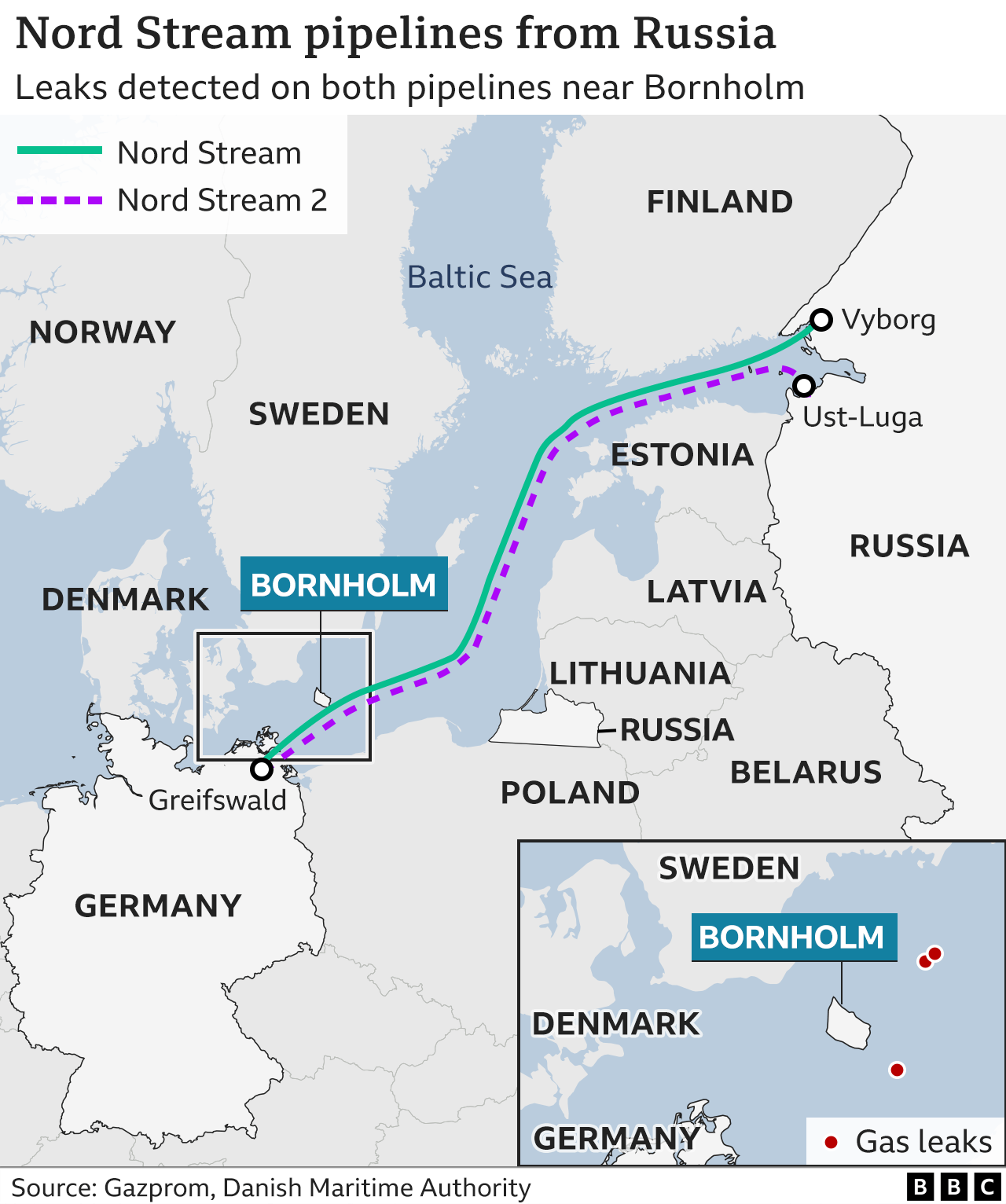The EU says the leaks are caused by sabotage and promises the “strongest possible response”.
This video can not be played
To play this video you need to enable JavaScript in your browser.
Sweden has found a new leak in a major undersea pipeline carrying Russian natural gas to the EU – making it the fourth discovered this week.
Denmark and Sweden reported gas leaks in the Nord Stream 1 and 2 pipelines earlier, alerting authorities to the possibility of a deliberate attack.
The EU said the leaks had been caused by sabotage.
Russia dismissed suggestions elsewhere that it had attacked its own pipelines as “predictable and stupid”.
The Swedish coast guard said they had found the fourth leak on Nord Stream 2, very close to a larger leak found earlier on Nord Stream 1.
The EU previously accused Russia of using gas supplies as a weapon against the West over its support for Ukraine.
EU leaders have come together to make clear that any deliberate attack on the continent’s energy infrastructure would be met with the “strongest possible response”.
Norway said it would deploy its military to protect oil and gas installations.
Neither pipeline is transporting gas at the moment, although they both contain gas.
The Nord Stream 1 pipeline – which consists of two parallel branches – has not transported any gas since August when Russia closed it down, saying it needed maintenance.
It stretches 1,200km (745 miles) under the Baltic Sea from the Russian coast near St Petersburg to north-eastern Germany. Its twin pipeline, Nord Stream 2, was halted after Russia invaded Ukraine in February.
Seismologists reported underwater blasts before the leaks emerged. Denmark’s Defence Command has released footage of the leaks which shows bubbles – the largest is 1km in diameter – at the surface of the Baltic Sea.
Andrei Kortunov of the Russian International Affairs Council – a Moscow-based think tank – told BBC Radio 4: “They always point finger at Russia but I think since it’s the Russian property it would be not very logical for Russia to inflict damage upon it. There are other ways to make European lives harder. They can simply stop the gas deliveries without damaging the infrastructure.”
